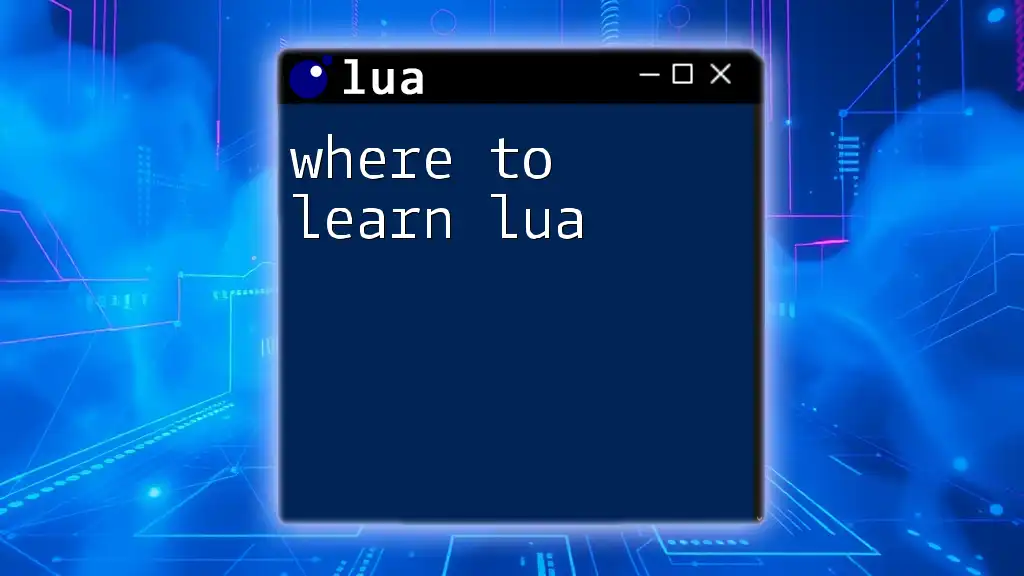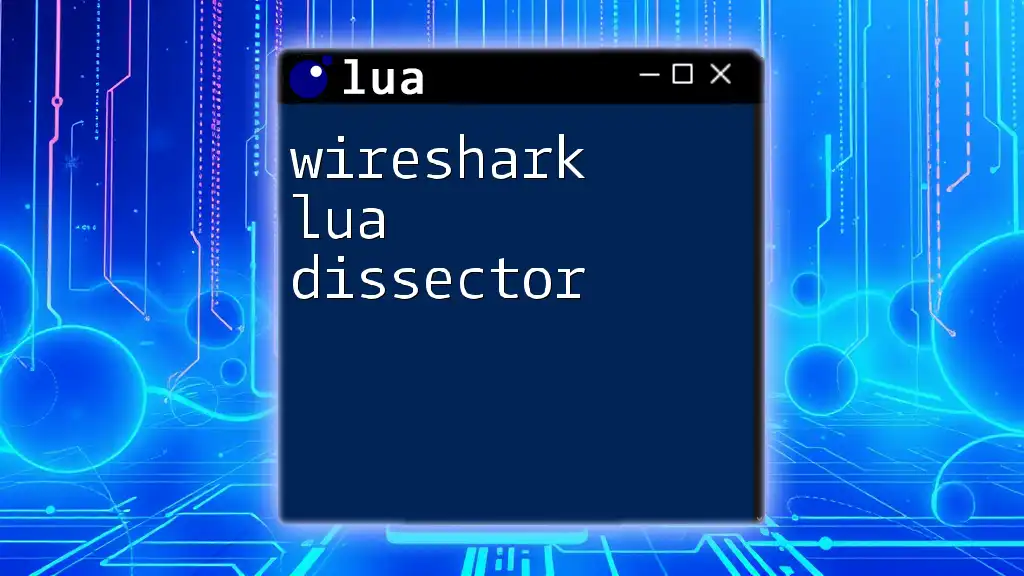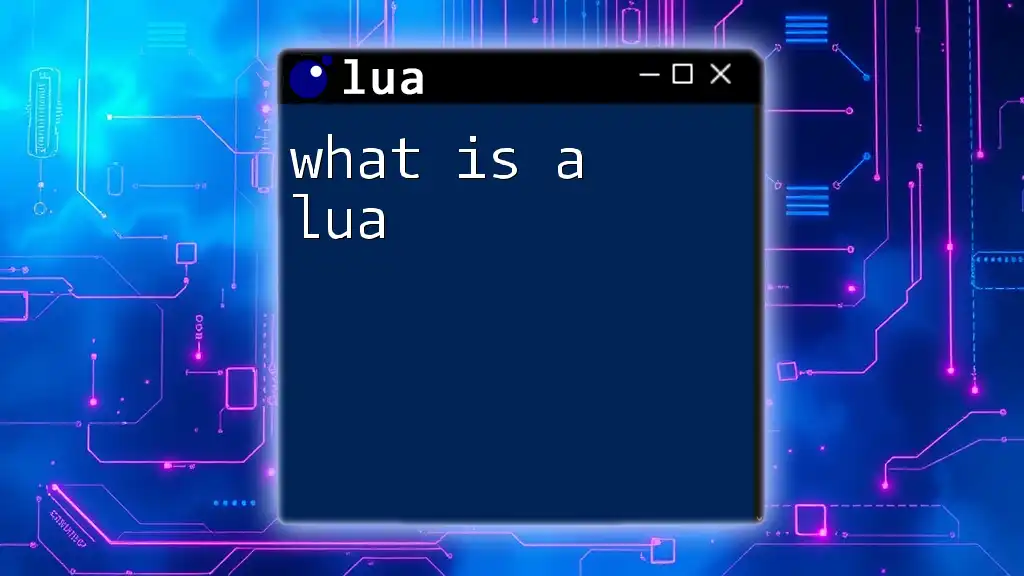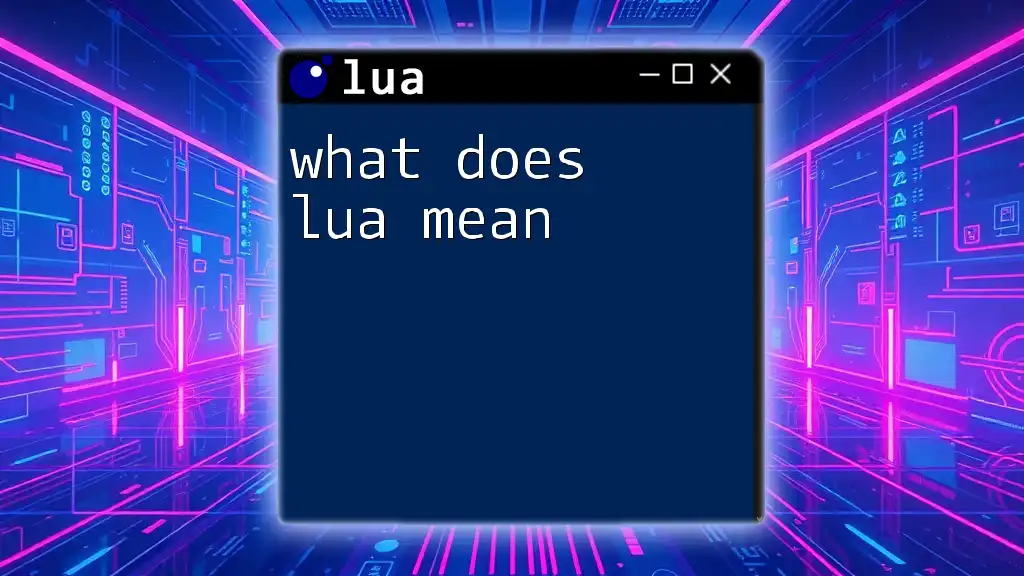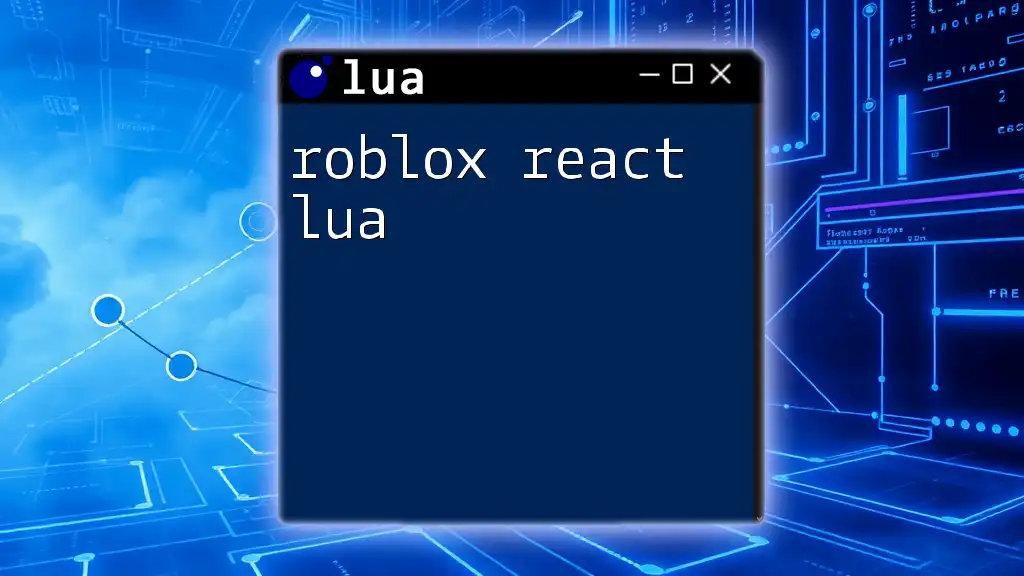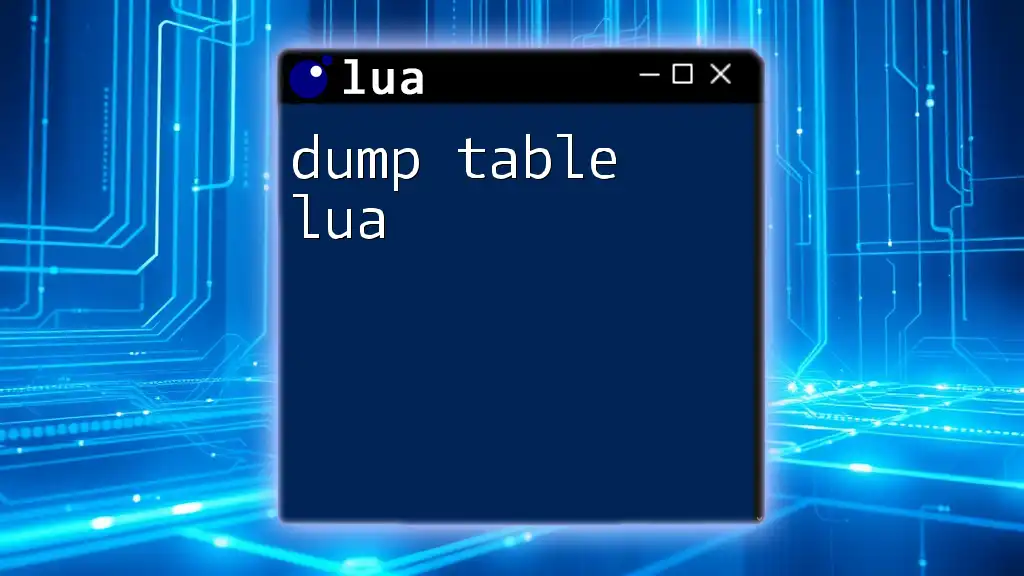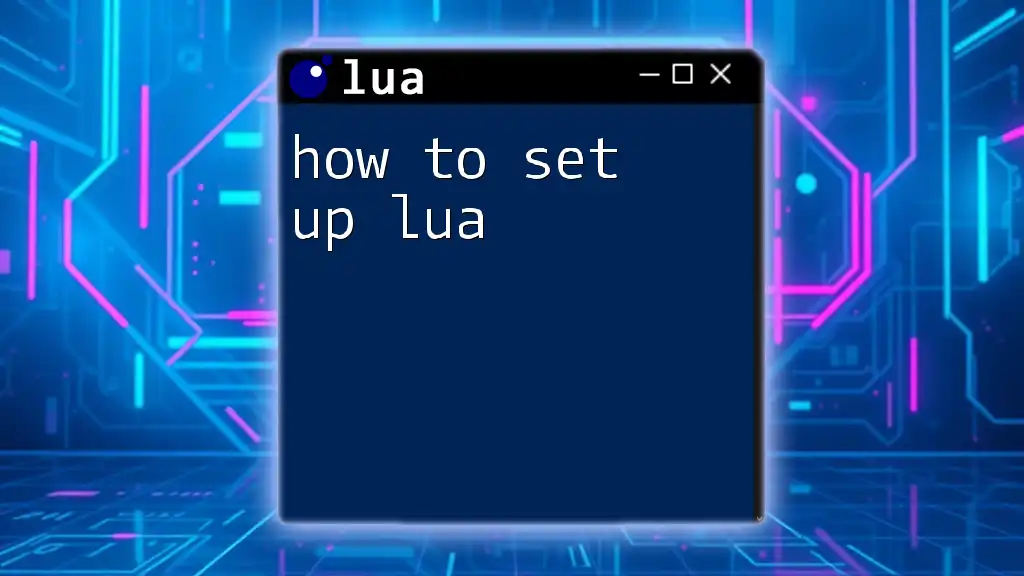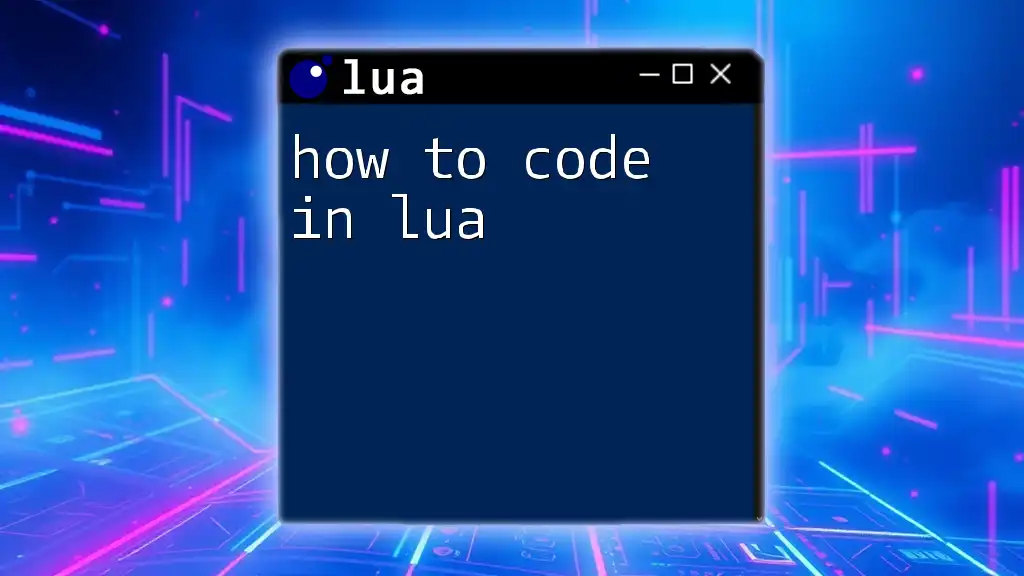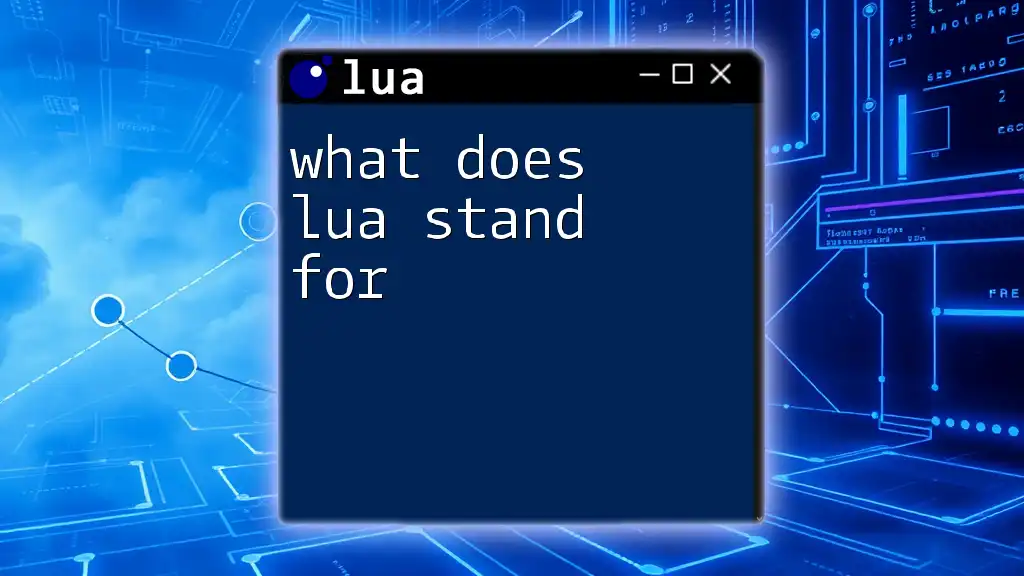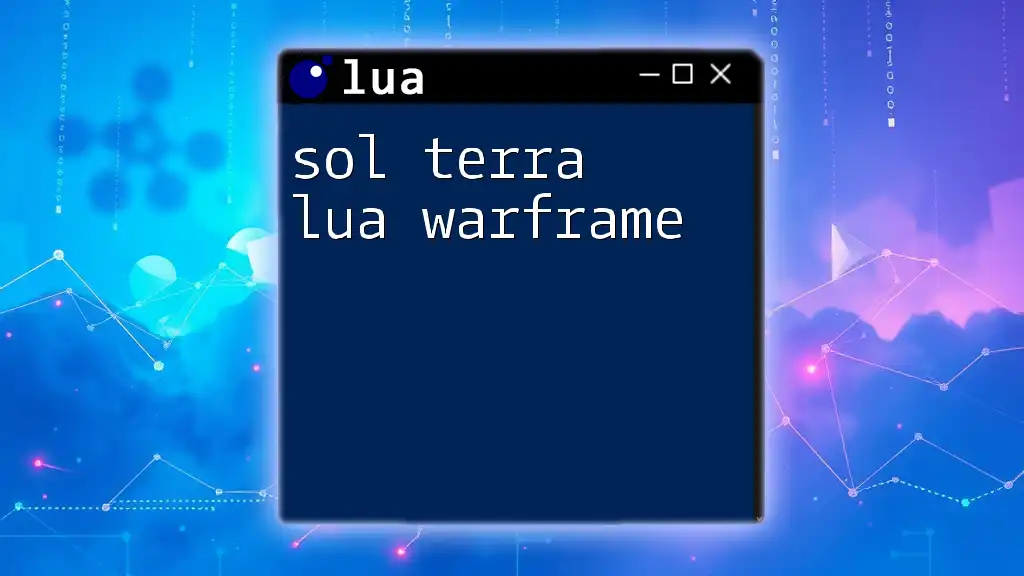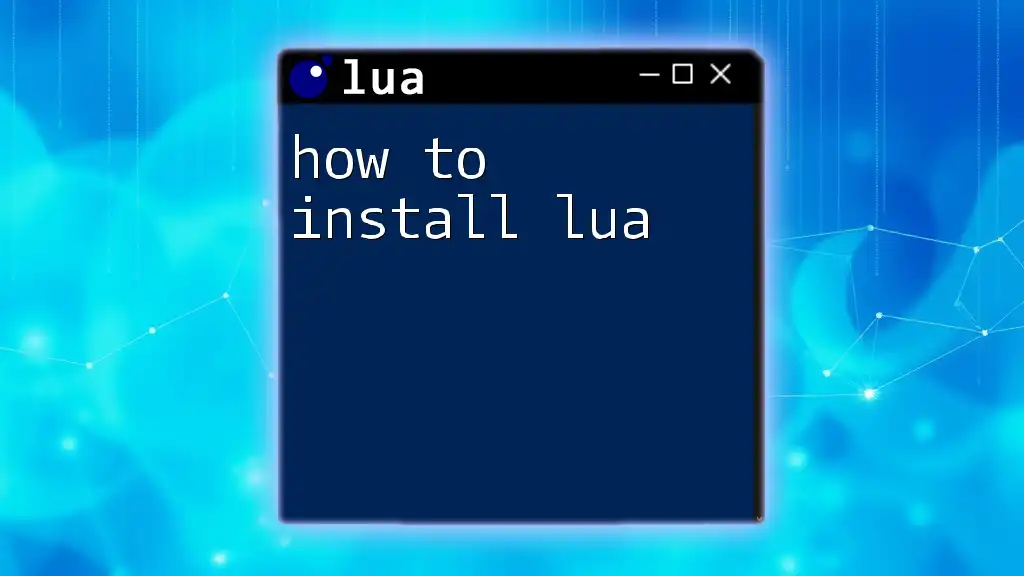If you're looking to learn Lua quickly, consider utilizing online platforms like Codecademy, free resources like the official Lua documentation, or community-driven sites such as Lua Users Wiki and Stack Overflow for practical examples and support.
Here's a simple Lua code snippet to get you started:
print("Hello, World!")
Understanding Lua
What is Lua?
Lua is a powerful, efficient, lightweight scripting language designed primarily for embedded use in applications. Developed in Brazil during the early 1990s, it has gained popularity due to its simplicity and versatility. Lua stands out for its key features: being lightweight, fast, and highly embeddable, which makes it ideal for game development, embedded systems, and web applications.
Why Learn Lua?
Learning Lua can give you a competitive edge due to its advantages over other programming languages. Lua features a simple syntax that's easy to grasp for beginners while also providing advanced capabilities valued by experienced developers. Its lightweight nature allows for rapid prototyping, making it especially popular among game developers. Notably, Lua is employed by major game engines and software, underscoring the growing demand for skilled Lua programmers in the industry.
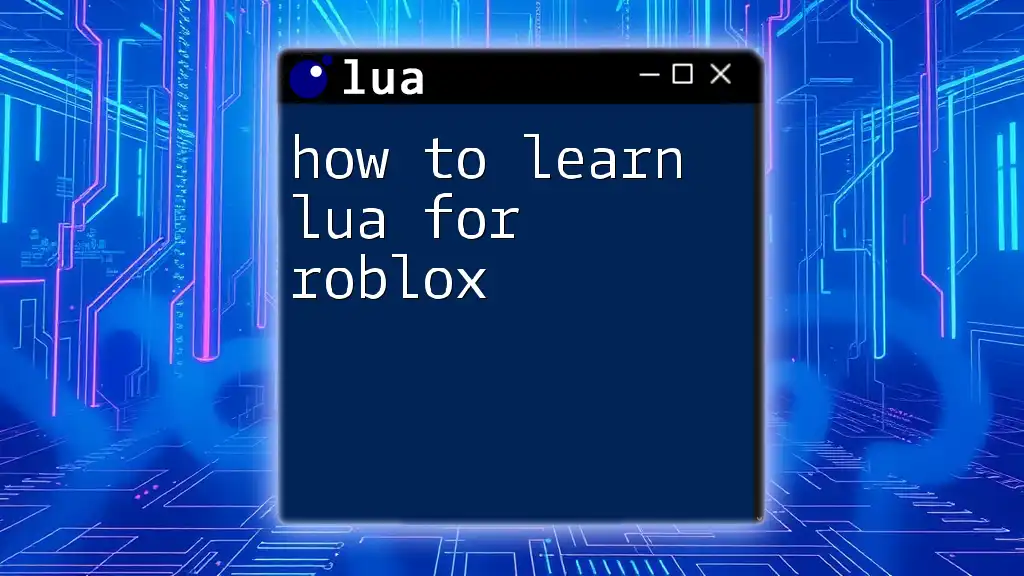
Online Learning Platforms
Interactive Coding Websites
Codecademy provides an engaging platform for mastering Lua through interactive lessons where you can practice coding directly in your browser. The appealing aspect of such platforms is that they allow for immediate application of concepts learned. However, they may not cover all advanced topics in-depth.
Another excellent option is Replit, a collaborative online coding environment. Here you can write and execute Lua code effortlessly. For example, to create a simple Lua script:
print("Hello, World!")
By running this script in Replit, you'll immediately see the output, reinforcing your understanding of basic syntax. Replit also allows you to collaborate with others, which can enhance your learning experience.
MOOCs (Massive Open Online Courses)
Platforms like Coursera and edX offer structured Lua courses taught by leading universities and industry experts. You can find comprehensive courses that provide a complete overview of Lua programming. For instance, look for courses that cover fundamentals, game development, or scripting integration. These courses typically offer quizzes and projects, allowing you to apply what you learn actively.
YouTube Channels
Learning via video can be incredibly beneficial for visual learners. Some of the top YouTube channels dedicated to Lua tutorials offer step-by-step guides on various topics. Channels may cover everything from basic syntax to complex Lua programming strategies. Take advantage of the vast library of content, including project walk-throughs and coding challenges, to further solidify your understanding.
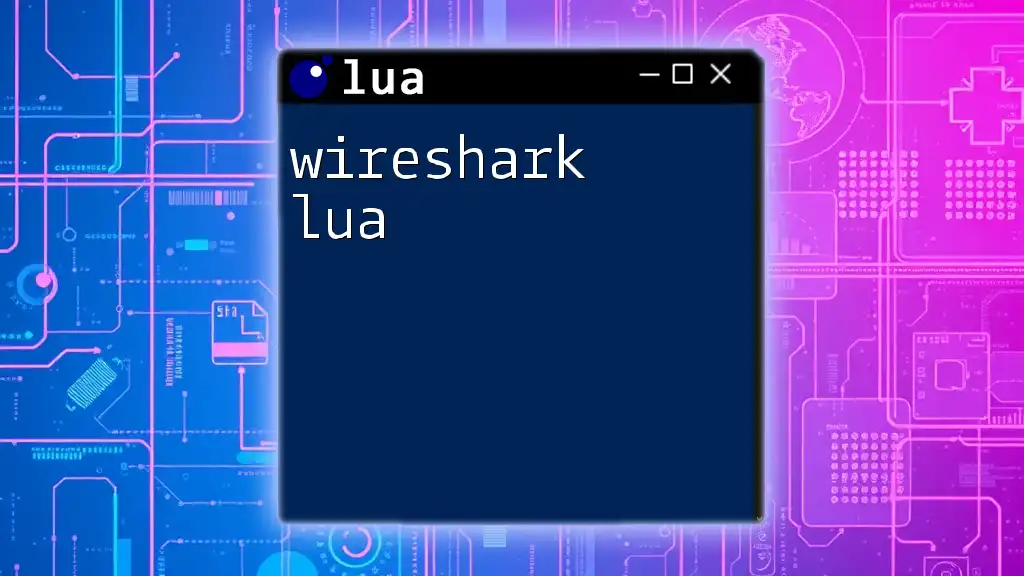
Documentation and Text Resources
Official Lua Documentation
The official Lua documentation is an invaluable resource for learners at every stage. It contains comprehensive sections like "Getting Started" and the "Reference Manual," which detail every aspect of the language. Understanding how to navigate and utilize the documentation is crucial. For instance, when exploring functions or libraries, you can effortlessly check the syntax and examples directly from the source.
Books for Learning Lua
Books remain a timeless resource for learning programming languages. Highly recommended titles include “Programming in Lua” and “Lua Quick Start Guide.” Each book aims at different proficiency levels, ensuring that whether you're a novice or an experienced programmer, you will find valuable insights tailored to your needs. Books typically break down complex concepts into digestible parts and often accompany explanations with real-world examples.
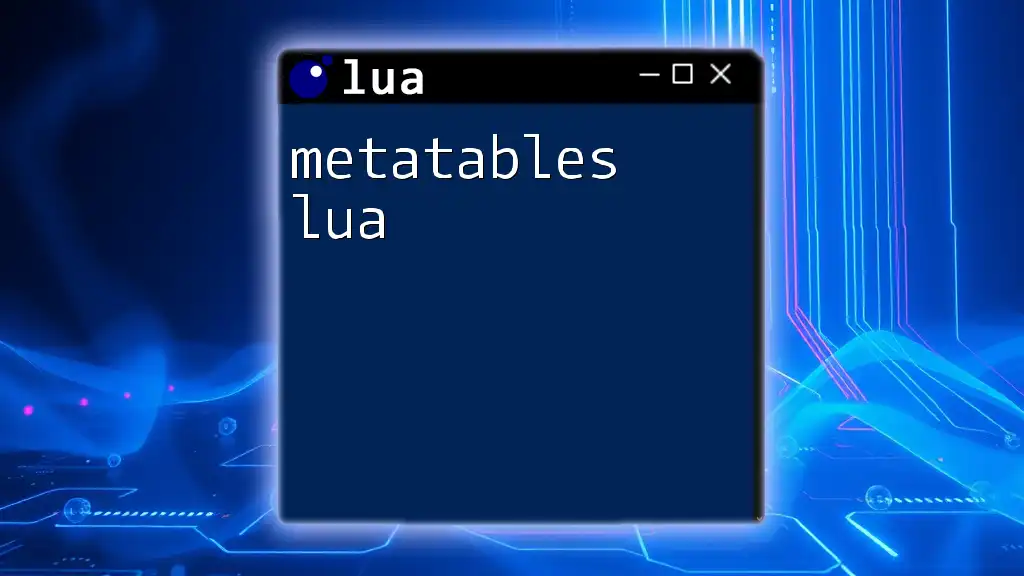
Community and Support
Online Forums and Discussion Groups
Stack Overflow is a notable platform where you can seek help for specific Lua programming questions. When you encounter an issue, searching for similar questions can often yield fast solutions. For example, if you’re trying to debug a function, formulating your query clearly may guide you to responses that effectively resolve your problem.
In addition, joining Lua user groups can enrich your learning experience. Platforms like mailing lists and Discord channels connect you with fellow learners and seasoned developers. Sharing experiences and asking questions within such communities fosters collaboration and enhances your programming skills.
Tutorials and Blogs
The web is rich with popular Lua blogs that offer tutorials and insights into programming with Lua. Many of these blogs focus on practical applications and advanced techniques which can greatly benefit aspiring developers. Keep an eye out for tutorial topics such as “Creating Your First Game with Lua" or "Integrating Lua with C/C++.” Engaging with tutorials not only solidifies your knowledge but also keeps you updated on Lua’s evolving ecosystem.
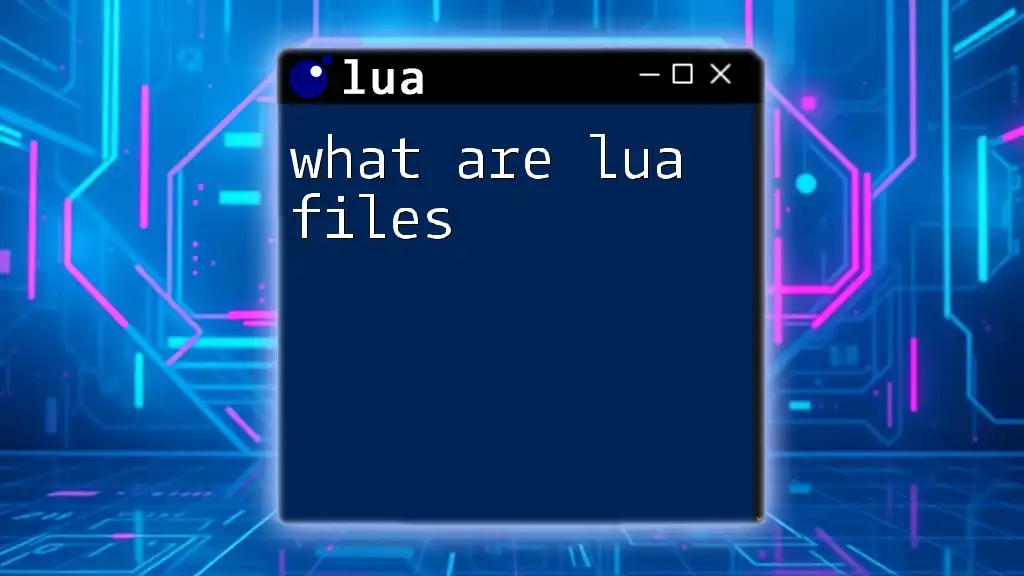
Projects to Practice Lua
Beginner-Friendly Projects
Simple Game Development is a fantastic way for beginners to dive into Lua. Utilizing popular game engines like Corona SDK and Love2D, you can create engaging projects while familiarizing yourself with the language. A great starter project is designing a basic platformer game where you can implement core mechanics such as character movement and environmental interaction.
Here’s a sample of how you might start a simple game loop in Love2D:
function love.load()
player = {}
player.x = 50
player.y = 50
end
function love.update(dt)
if love.keyboard.isDown('right') then
player.x = player.x + 100 * dt
end
end
function love.draw()
love.graphics.rectangle("fill", player.x, player.y, 50, 50)
end
Scripting for Workflow Automation is another good project idea for beginners. By creating small scripts to automate tedious tasks, you can learn how Lua interacts with the environment. For example, automating file organization:
os.execute("mkdir new_folder") -- Creates a new folder
Advanced Projects
As you gain confidence with Lua, consider tackling developing embedded applications where Lua shines. You can explore its applications in the Internet of Things (IoT) by creating projects that control devices or collect data.
For more advanced learners, think about projects that integrate Lua with systems by creating dynamic applications for smart home devices or developing tools that leverage Lua’s speed and efficiency in larger software environments.

Conclusion
In conclusion, the resources available for learning Lua are diverse and extensive, spanning from interactive platforms to comprehensive documentation and a supportive community. The key is to explore different avenues of learning and apply your knowledge through real projects. By beginning your journey and immersing yourself in Lua programming, you unlock a world of possibilities. Join the community, share your progress, and continually seek out new challenges to further grow your skills in this exciting programming language.
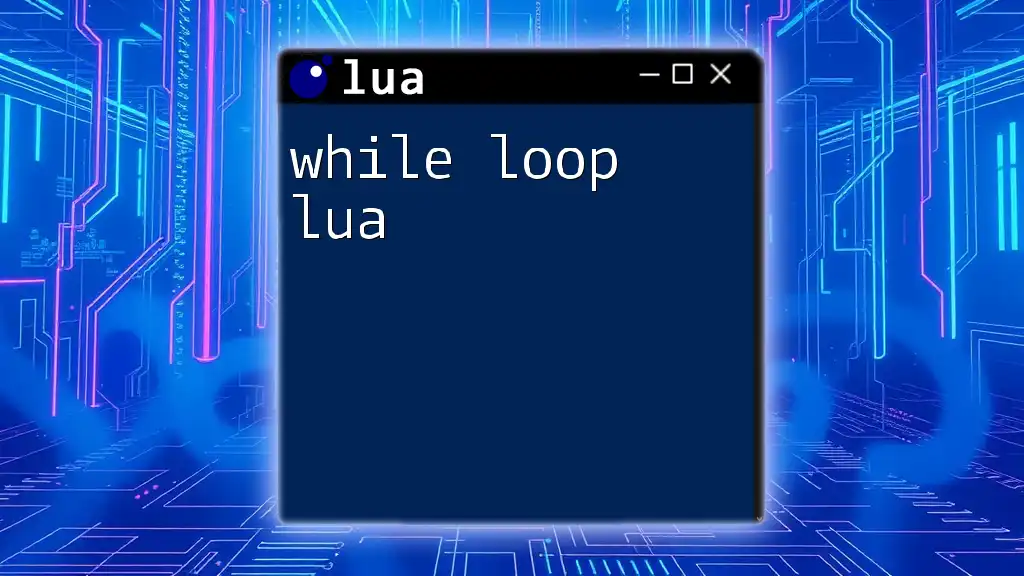
Additional Resources
To further aid in your learning, explore additional resources, including forums, libraries, and online coding platforms. Keep learning and practicing, and remember, the journey to mastering Lua is as rewarding as the destination.

